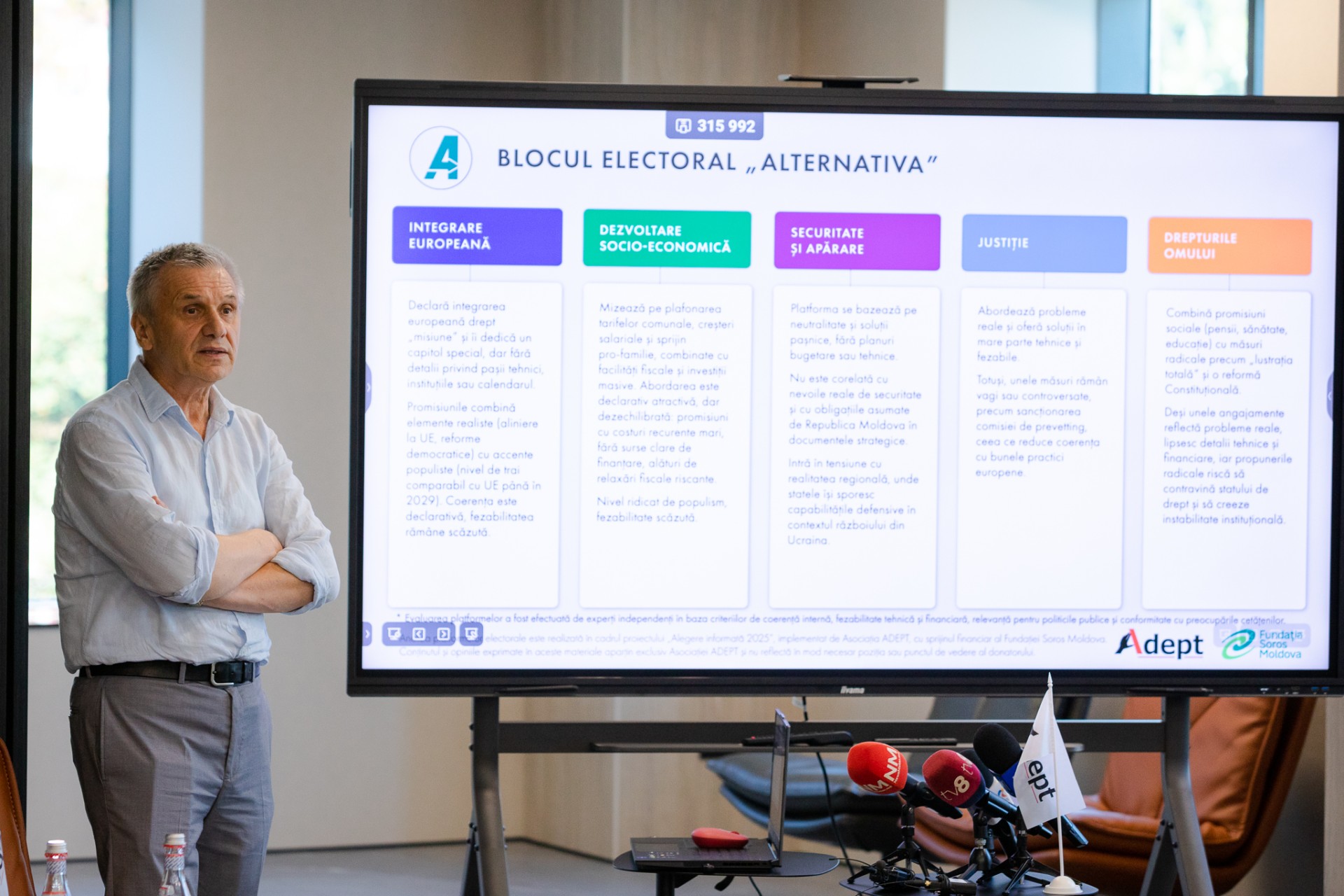Electoral Platforms: More About Political Mobilization Than Governing Agendas

On September 24, 2025, during an ADEPT Press Club event, the analytical note “Comparative Analysis of Electoral Platforms” was presented.
The study, prepared by the Association for Participatory Democracy (ADEPT) in collaboration with five independent experts, concludes that the electoral platforms submitted for the 2025 parliamentary elections serve more as tools of political mobilization than as realistic programs that could form the basis of governance in the Republic of Moldova. The analysis was carried out as part of the “Informed Choice 2025” project, supported by the Soros Foundation Moldova.
The note, developed jointly with independent experts, was unveiled and discussed at a public session of the ADEPT Press Club just days before the parliamentary elections.
The evaluation focused on four political forces considered to have realistic chances of entering Parliament: the Party of Action and Solidarity (PAS), the Patriotic Bloc, the “Alternative” Bloc, and Our Party. The selection was based on average polling data collected between April and September 2025. The platforms were assessed across five domains viewed as critical for the country’s development: European integration, justice, human rights, security and defense, and economic and social development. Each party was scored on a scale from 0 to 5, taking into account the coherence of their proposals, feasibility, alignment with national strategies, and relevance to citizens’ priorities.
The results highlight significant differences among the parties. PAS stands out with a strong pro-European commitment and a coherent approach to justice reform. The “Alternative” Bloc proposes ambitious reforms, though their level of detail and feasibility varies. The Patriotic Bloc emphasizes sovereignty and neutrality, yet its social promises raise serious concerns over financial sustainability. Meanwhile, Our Party advances radical commitments that risk falling into populism and institutional incoherence.
The comparative analysis shows that the clearest and most coherent commitments are in the areas of justice and human rights, where parties articulate positions more closely aligned with public expectations. Still, even in these areas, technical and financial feasibility remains an issue. At the other end of the spectrum, security and European integration are treated superficially, reduced to broad statements and lacking concrete measures to address current risks. Overall, the platforms remain closer to the logic of political mobilization than that of governance, which could undermine their credibility with voters.
The analysis of electoral platforms is part of ADEPT’s “Informed Choice 2025” project, implemented with financial support from the Soros Foundation Moldova. The content and opinions expressed are solely those of ADEPT and do not necessarily reflect the position of the donor.
